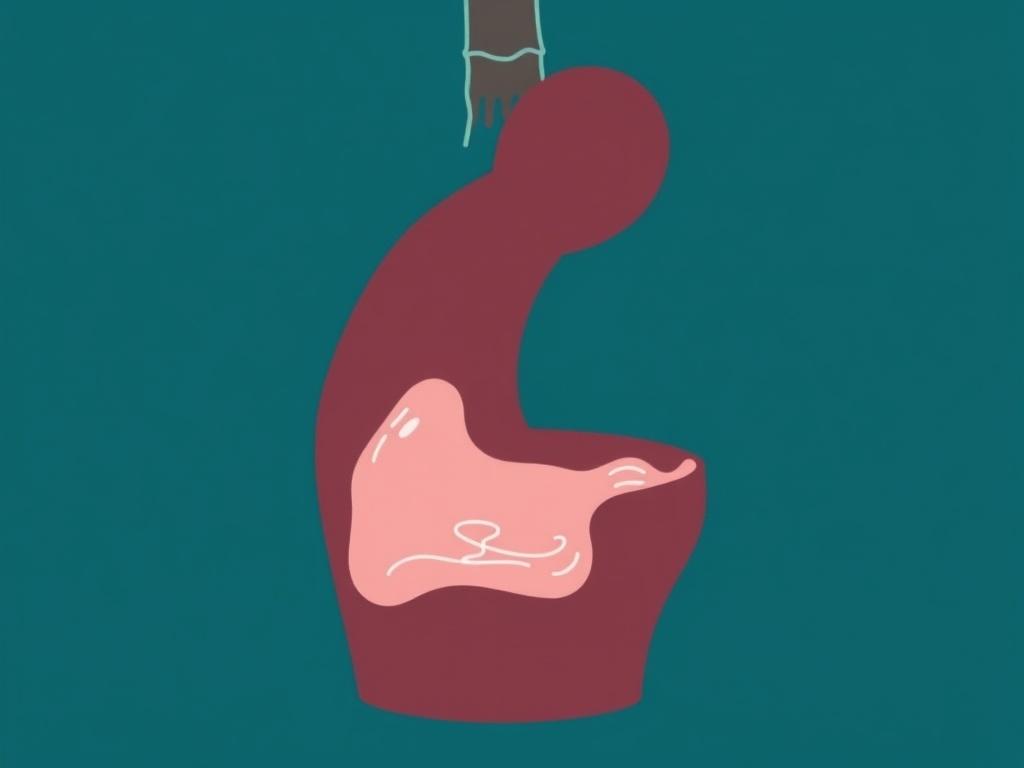When it comes to monitoring our health, few things are as deceptively informative as stool. Although often a taboo subject, understanding the characteristics of your bowel movements can offer valuable clues about what’s happening inside your body. One of the most intriguing aspects people notice is whether their stool floats or sinks in the toilet. But what does floating vs. sinking stool actually mean? Is it a cause for concern, or just a quirky detail of digestion? In this article, we’ll delve deep into the science behind stool buoyancy, explore what various stool types might signal about your health, and provide practical advice on when to seek medical attention.
Understanding the Basics of Stool Formation
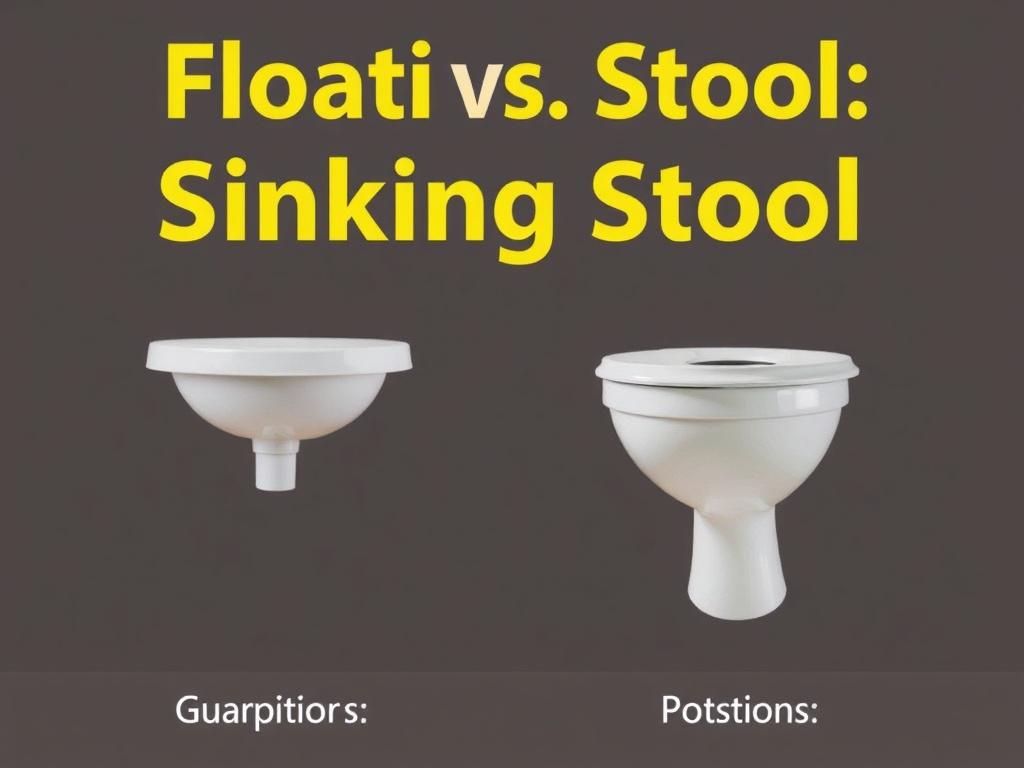
To unpack the meaning behind floating vs. sinking stool, it’s helpful to understand how stool forms in the first place. Stool, or feces, is primarily made up of water, bacteria, undigested food particles, fat, and cells shed from the lining of the intestines. When food travels through the digestive tract, nutrients and fluids are absorbed, leaving the leftover waste to be compacted into stool.
The density and composition of stool vary widely based on diet, hydration, gut bacteria, and overall digestive health. Typically, stool sinks because it is denser than water, but stool that floats can indicate the presence of excess gas or fat.
What Causes Stool to Float?
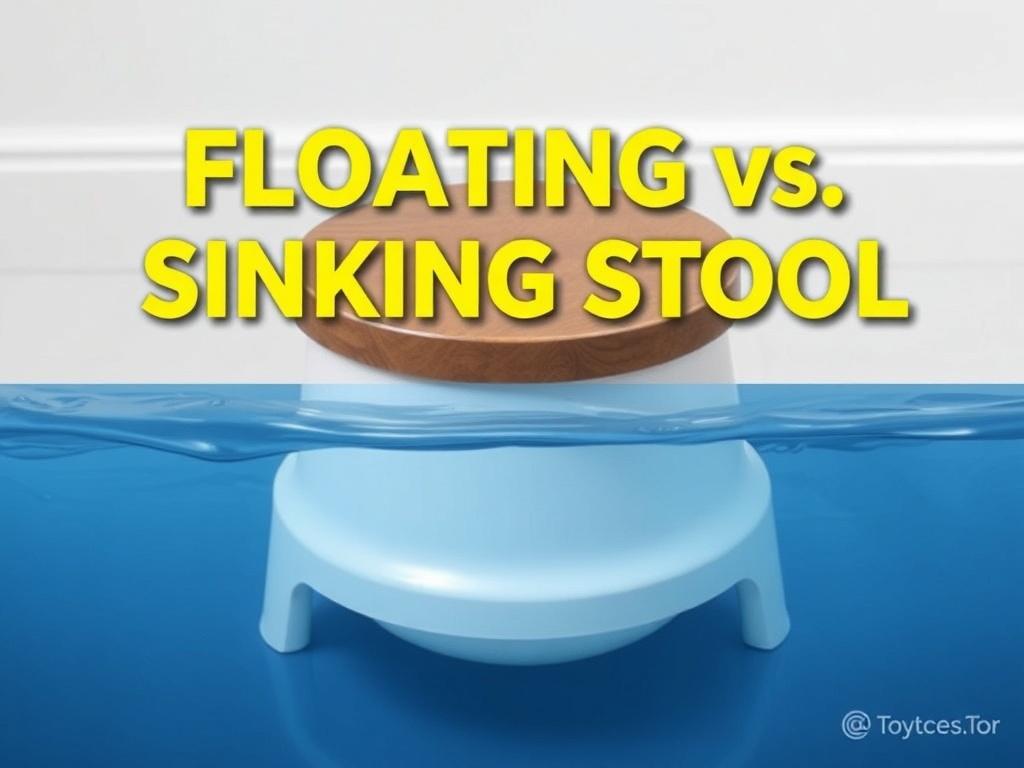
Floating stool tends to be less dense than water, which usually means it contains trapped gas or a higher fat content. The presence of excess gas can result from digestion issues, such as the fermentation of undigested food by bacteria. Alternatively, a fatty stool (known medically as steatorrhea) often floats because fat is lighter than water.
Common Reasons for Floating Stool
- Malabsorption: Conditions that impair the body’s ability to absorb fat (like celiac disease, pancreatitis, or cystic fibrosis) can cause fatty stool.
- Diet High in Fat or Fiber: Certain foods can increase the fat or gas content in stool, making it float.
- Infections: Certain gastrointestinal infections that affect digestion may result in floating stool.
- Lactose Intolerance: Poor digestion of lactose can cause gas buildup, contributing to floating stool.
Is Floating Stool Always a Problem?
Not necessarily. Occasionally experiencing floating stool can be perfectly normal, especially after a high-fat meal or when consuming gas-producing foods like beans, broccoli, or carbonated drinks. However, if floating stool is frequent, accompanied by other symptoms such as diarrhea, weight loss, or abdominal pain, it could signal a more serious health issue.
What Causes Stool to Sink?
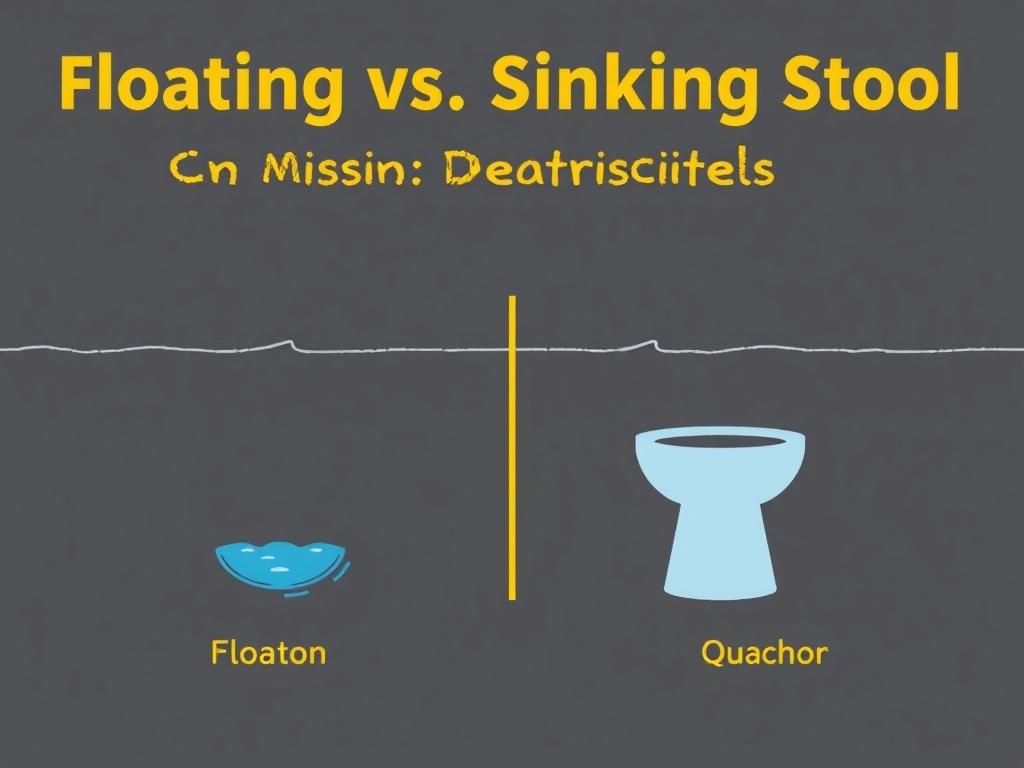
Sinking stool is generally considered typical and healthy. Because stool is denser than water due to its composition—solid waste, fiber, and water—it often sinks right to the bottom of the toilet. However, not all sinking stool is the same, and variations in stool appearance can also give insight into your digestive well-being.
Factors Contributing to Sinking Stool
- Normal Digestion: Proper breakdown and absorption of nutrients usually lead to denser stool that sinks.
- Low Gas Content: Lower levels of intestinal gas make stool denser.
- High Fiber Intake: Fiber helps bulk up stool and usually aids in regular, formed stool that sinks.
When Sinking Stool Might Be a Concern
Though sinking stool is typically normal, certain qualities of sinking stool can warrant attention. For example, very hard, pellet-like sinking stool may suggest constipation or dehydration, while black or tarry sinking stool might indicate bleeding in the upper gastrointestinal tract.
Comparing Floating and Sinking Stool: A Quick Reference
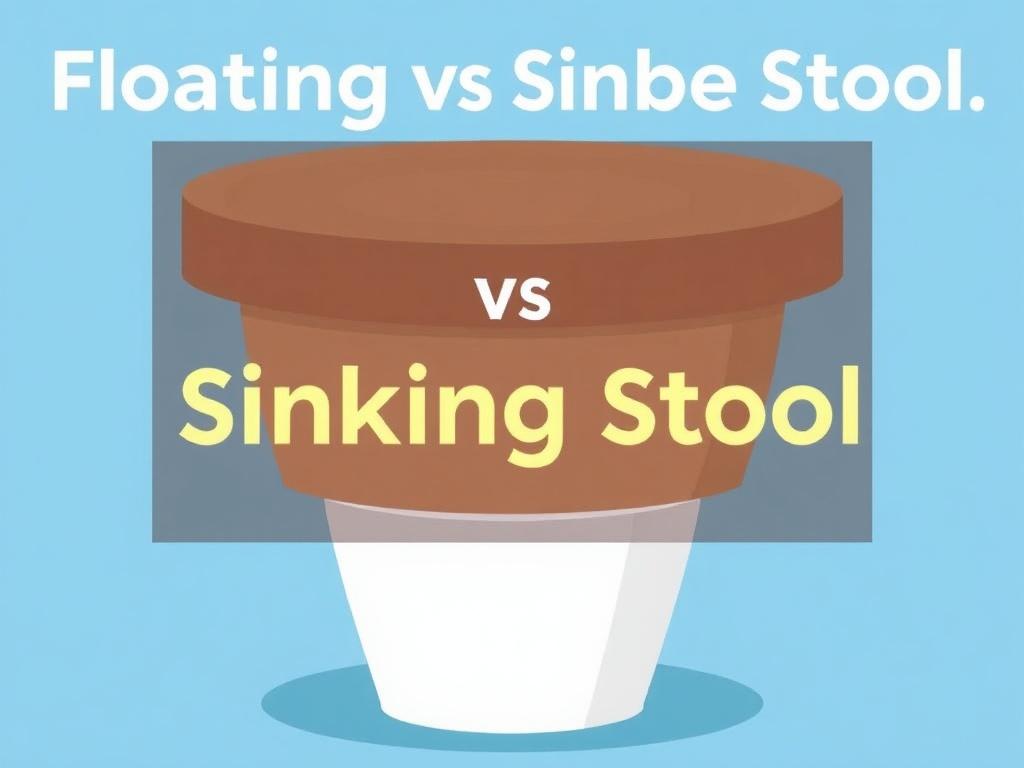
To help clarify the differences between floating and sinking stool, here’s a table summarizing typical causes, appearances, and potential health implications.
| Characteristic | Floating Stool | Sinking Stool |
|---|---|---|
| Density | Low (due to gas or fat content) | High (due to solids and fiber) |
| Common Causes | Malabsorption, infections, gas, high-fat diet, lactose intolerance | Normal digestion, high fiber intake, low gas content |
| Typical Appearance | Soft, sometimes greasy, possibly foul-smelling | Formed, solid, varied color depending on diet |
| Possible Health Concerns | Steatorrhea, digestive disorders, infections | Constipation, bleeding (if abnormal color or texture) |
How Diet Influences Stool Behavior
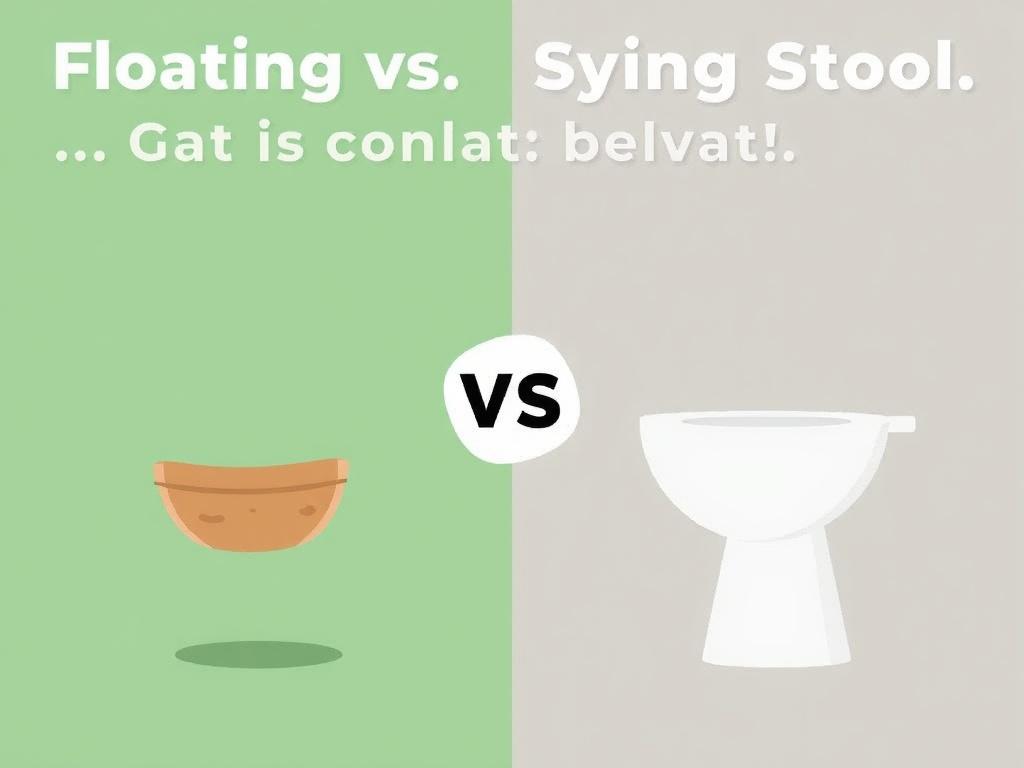
Your diet plays a huge role in stool buoyancy. Different foods alter the amount of gas, fat, water, and fiber entering your digestive system, shaping both the texture and buoyancy of your stool.
The Role of Fiber
Fiber is essential for healthy digestion and regular bowel movements. Soluble fiber dissolves in water and forms a gel-like substance, which aids in softening stool. Insoluble fiber adds bulk and can help prevent constipation. Diets rich in fiber typically produce sinking stool that is softer and easier to pass.
Fat Intake and Floating Stool
High-fat meals can increase the fat content in stool, making it lighter and more buoyant. Normally, the small intestine absorbs most dietary fat. However, conditions that impair fat absorption can lead to fatty stool that tends to float.
Gas-Producing Foods
Certain foods promote gas production due to fermentation by gut bacteria. Beans, lentils, cruciferous vegetables, and carbonated drinks often produce excess intestinal gas, which can get trapped in stool and cause it to float.
When Should You Be Concerned About Stool Buoyancy?
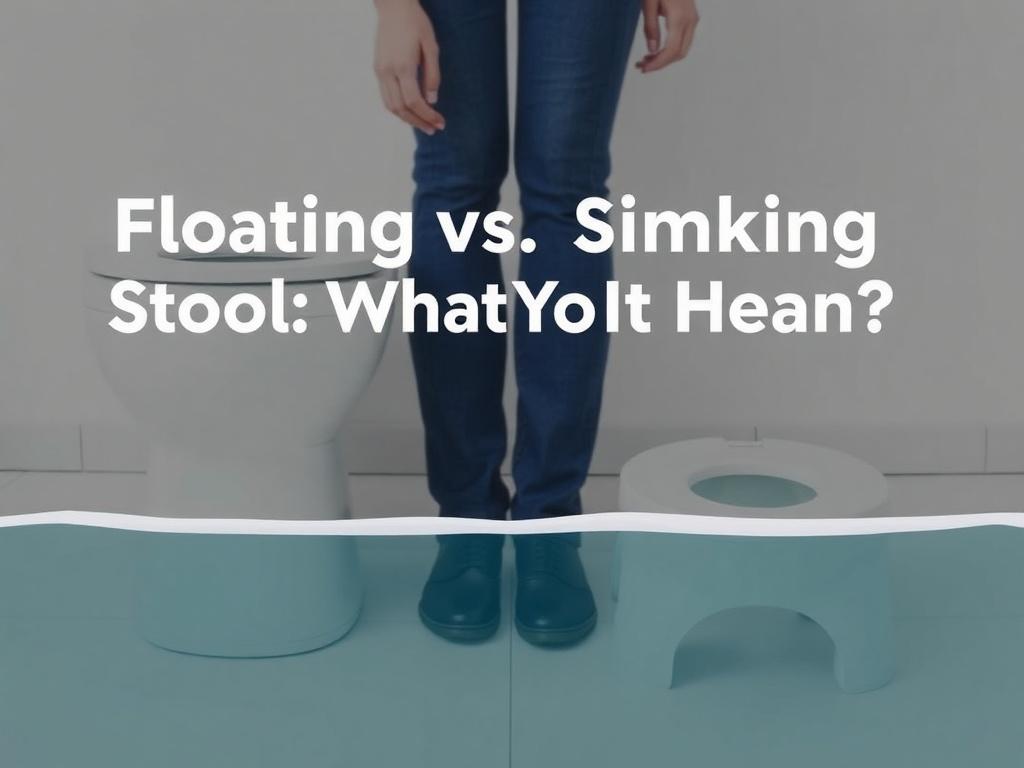
Recognizing when floating vs. sinking stool points to a health issue is crucial. Here are some red flags to watch out for:
- Persistent Floating Stool: If stool is consistently floating and appears greasy, it might indicate malabsorption issues such as pancreatic insufficiency or celiac disease.
- Changes in Stool Color or Consistency: Black, tarry, or bloody stool requires immediate medical evaluation.
- Associated Symptoms: Weight loss, abdominal pain, chronic diarrhea, or fatigue alongside abnormal stool appearance should prompt a healthcare visit.
- Difficulty Passing Stool: Hard, pellet-like sinking stools may signify constipation or dehydration needing attention.
Common Medical Conditions Related to Floating or Sinking Stool
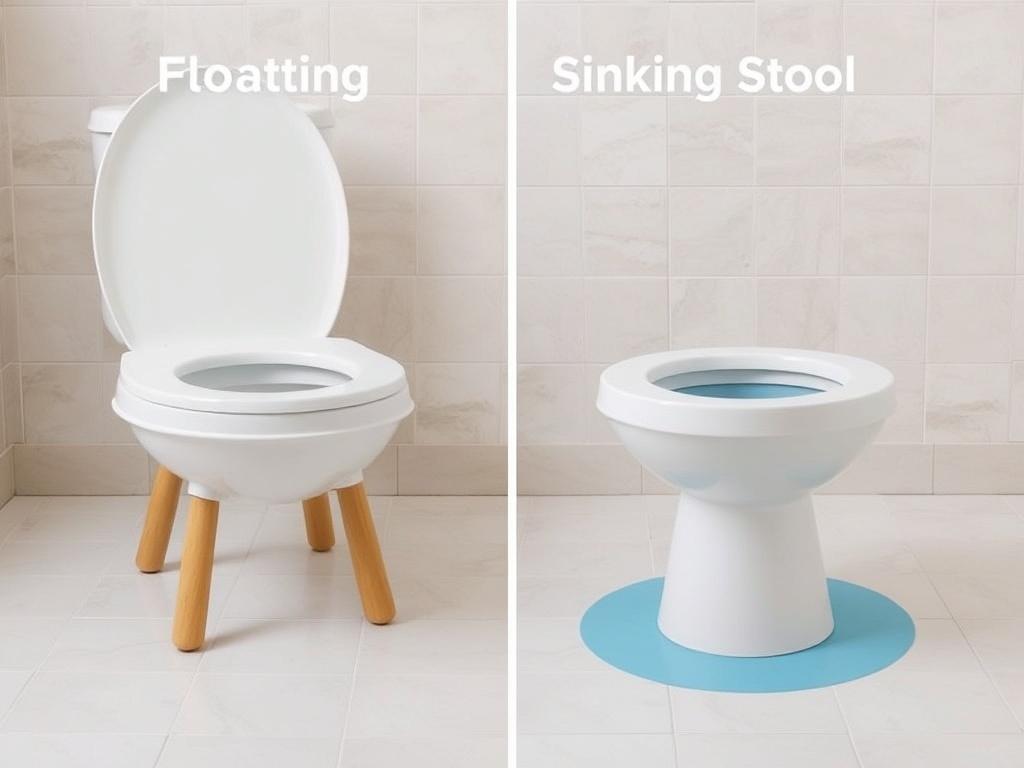
Floating and sinking stool patterns can sometimes hint at underlying medical conditions. Here are some notable examples:
Conditions Linked with Floating Stool
- Celiac Disease: An autoimmune disorder causing poor fat absorption due to damage in the small intestine.
- Pancreatic Insufficiency: The pancreas fails to produce enough digestive enzymes, leading to malabsorption and steatorrhea.
- Giardiasis: An intestinal infection that can cause greasy, foul-smelling, floating stools.
Conditions Linked with Sinking Stool
- Constipation: Hard, dry, sinking stool often reflects insufficient fiber or fluid intake.
- Gastrointestinal Bleeding: Black or tarry sinking stool might suggest bleeding in the upper digestive tract and requires urgent care.
- Iron Supplementation: Iron pills can cause dark-colored sinking stools.
Tips for Maintaining Healthy Stool and Digestion

Understanding floating vs. sinking stool helps, but the best approach is to support overall digestive health. Here are some practical tips to keep your digestive system running smoothly and your stool healthy:
- Eat a Balanced Diet: Include plenty of fruits, vegetables, whole grains, and lean proteins to ensure adequate fiber and nutrient intake.
- Stay Hydrated: Drinking enough water softens stool and prevents constipation.
- Limit Excessive Fat: Moderate fat intake to avoid fat malabsorption issues.
- Exercise Regularly: Physical activity promotes intestinal motility and regular bowel movements.
- Monitor Food Intolerances: Pay attention to how your body responds to dairy, gluten, and other common triggers.
- Avoid Overuse of Laxatives: Use laxatives sparingly as they can disrupt normal bowel function over time.
When to See a Doctor

While occasional floating or sinking stool variations are normal, persistent changes, especially when combined with concerning symptoms, warrant a doctor’s evaluation. Your healthcare provider may recommend tests such as stool analysis, blood tests, imaging, or endoscopy to diagnose underlying problems.
If any of the following occur, it’s best to seek medical advice:
- Sudden, unexplained weight loss
- Persistent diarrhea or constipation lasting over two weeks
- Visible blood in stool or black, tarry stools
- Severe abdominal pain
- Fatigue or weakness
- Unexplained changes in bowel habits that persist
Summary Table: When Floating vs. Sinking Stool Needs Medical Attention
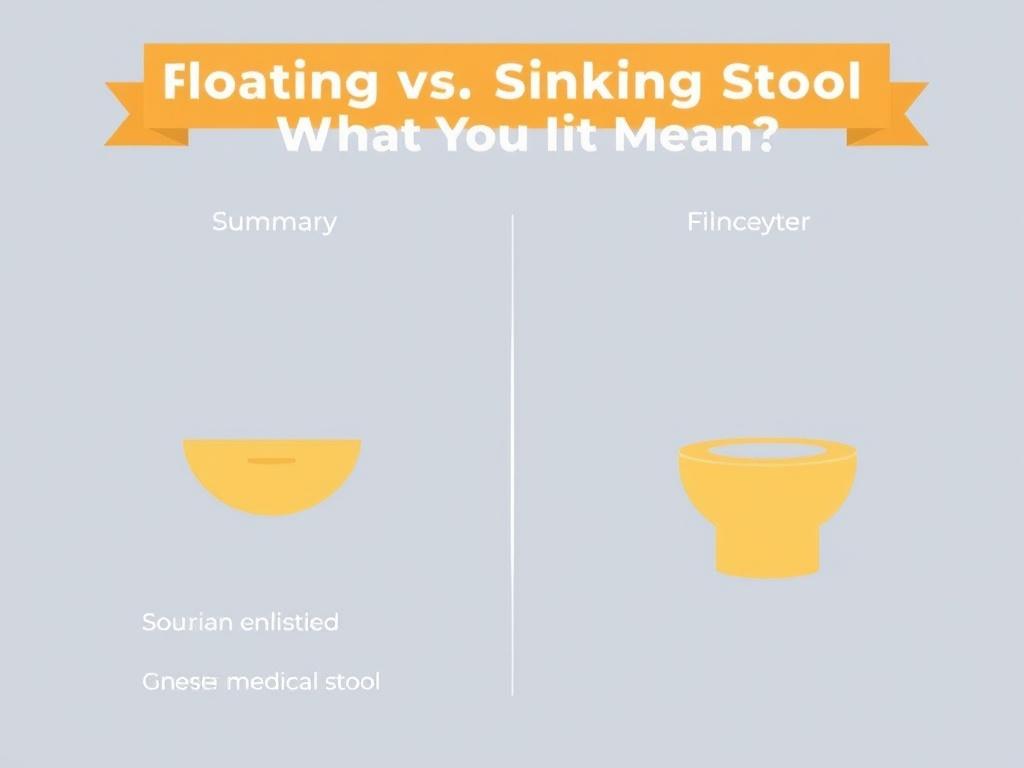
| Stool Type | Concerning Signs | Possible Causes | Recommended Action |
|---|---|---|---|
| Floating Stool | Persistent floating, greasy texture, foul smell, weight loss | Fat malabsorption, infections, celiac disease, pancreatic insufficiency | Consult healthcare provider for evaluation and tests |
| Sinking Stool | Black/tarry color, blood, hard/pellet-like consistency, ongoing constipation | GI bleeding, iron supplements, constipation, dehydration | Seek medical attention, especially for bleeding signs |
Addressing Common Myths About Stool Buoyancy
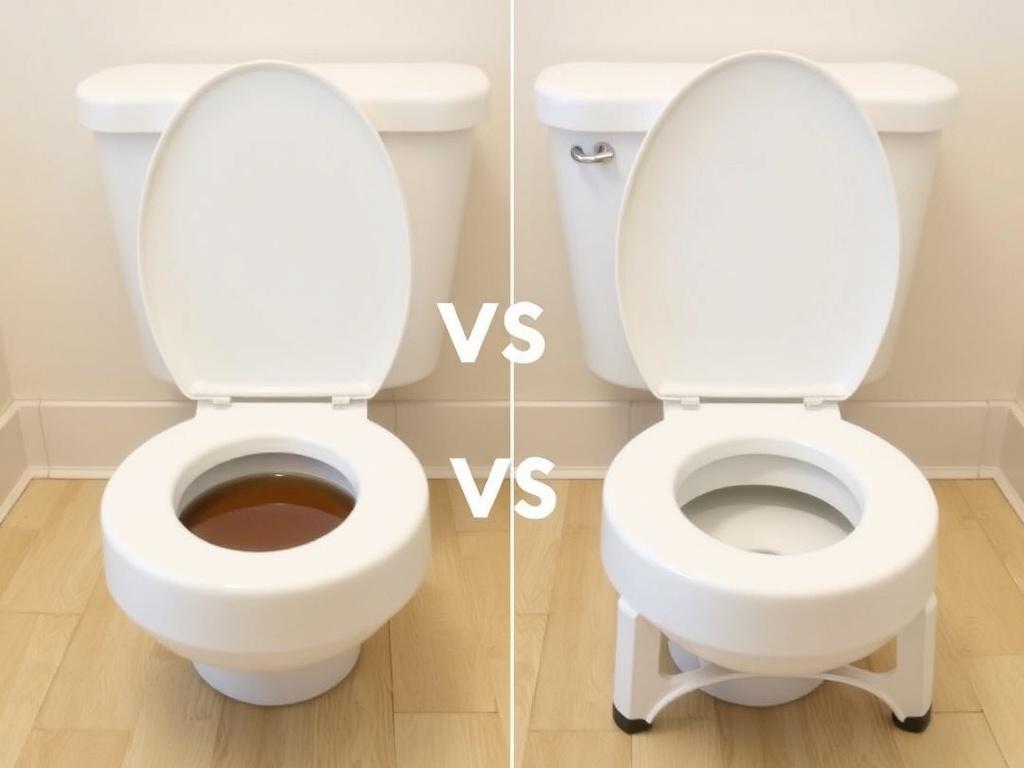
Many people have misconceptions about what floating or sinking stool means. Let’s clear up a few common myths:
- Myth: Floating stool always means you have a serious digestive problem.
Fact: Occasional floating stool is common and often harmless. - Myth: Sinking stool is always healthy.
Fact: While usually normal, sinking stool that is very hard or discolored can be a symptom of health issues. - Myth: Stool color is the only thing to notice.
Fact: Stool’s appearance, consistency, smell, and buoyancy all provide insights about digestion.
How to Monitor Your Stool Effectively
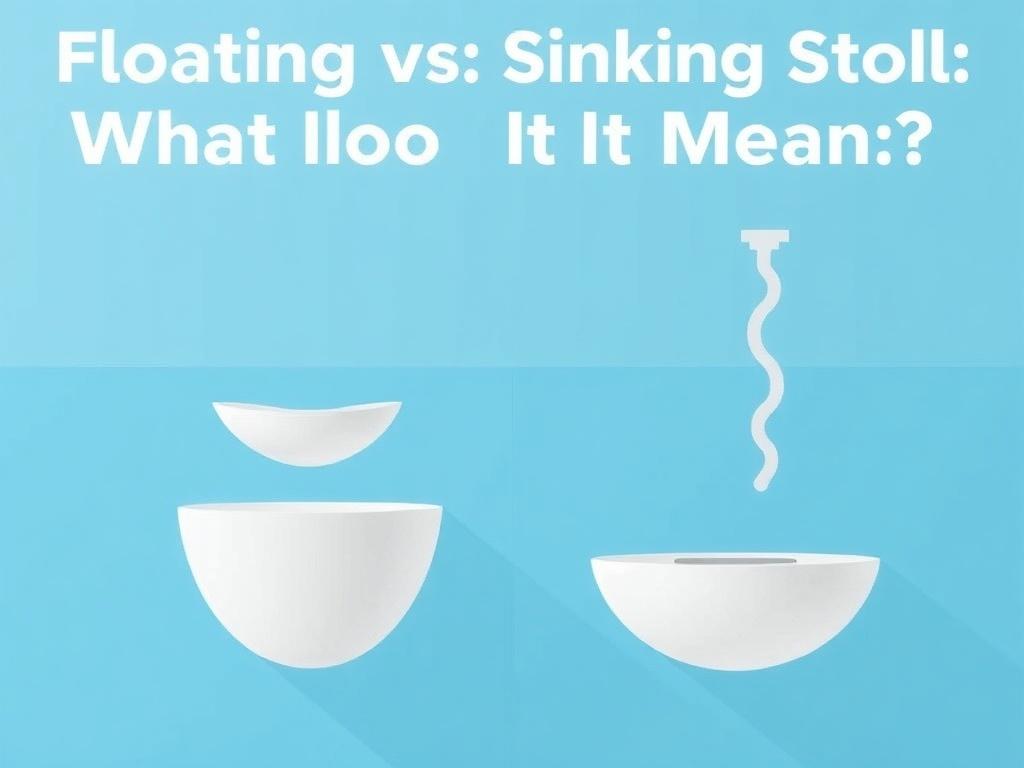
If you want to stay proactive about your digestive health, observing your stool regularly can be a useful practice. Here’s how to do it effectively:
- Note whether your stool tends to float or sink consistently.
- Observe the color, size, shape, and odor of your stool.
- Record any changes in bowel habits or symptoms like pain and urgency.
- Keep track of your diet and lifestyle changes to see how they affect stool.
- Discuss any persistent or worrying changes with your healthcare provider.
By maintaining this awareness, you can catch early signs of digestive issues and seek timely treatment.
Conclusion
Floating vs. sinking stool might seem like a small and personal detail, but it carries significant information about your digestive health. Occasional floating stool is generally harmless and often related to diet or gas, while persistent floating stool with greasy texture might indicate malabsorption or infection. Sinking stool is usually normal, but changes in color, consistency, or accompanying symptoms require medical attention. Paying attention to your stool, along with other health signals, helps you gain insight into your digestive wellbeing and when to consult a healthcare professional. Healthy digestion is a cornerstone of good health, and understanding what your stool is telling you is an approachable step towards maintaining it.
Читайте далее:
